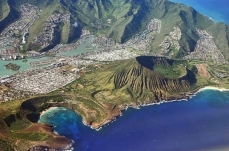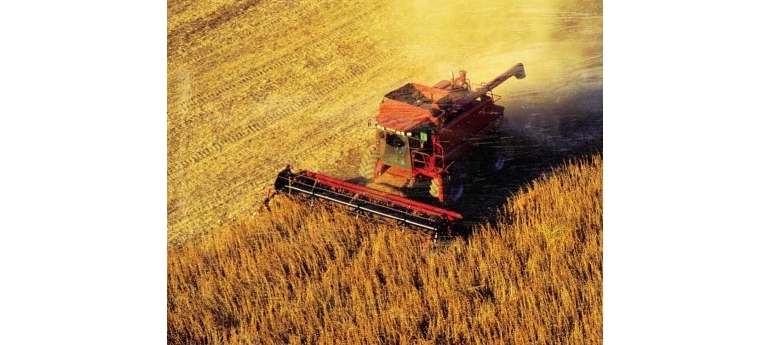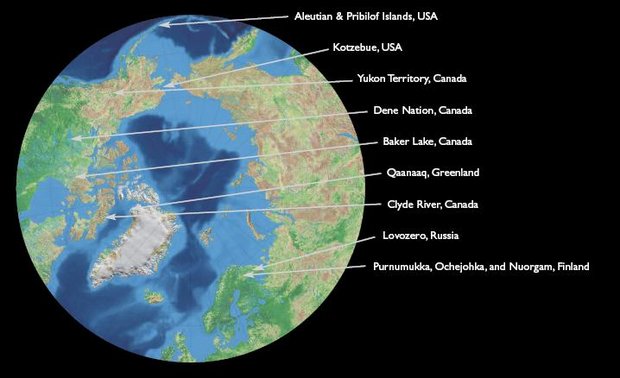Sustainable Development
From The Encyclopedia of Earth

Photo: Water.org
Sustainable development is a philosophy of resource consumption that believes that it is best to conserve and preserve for future generations while at the same time meeting current human needs. This term was first used in the United Nation’s Brundtland Commission in 1983 that was chaired Gro Harlem Brundtland, the Prime Minister of Norway. Sustainable development is also concerned with the human degradation of natural systems and the relationship of this process to the future social and economic challenges facing humans. Research in sustainable development has expanded greatly since the Brundtland Commission. Further, many governments and private companies now apply the principles of sustainable development to their bottom line.
========
-
 Featured Article
Featured Article  Environmental Kuznets curve for biodiversity...The environmental Kuznets curve (EKC) for biodiversity conservation is a hypothesis describing a particular relationship between economic prosperity and the... More »
Environmental Kuznets curve for biodiversity...The environmental Kuznets curve (EKC) for biodiversity conservation is a hypothesis describing a particular relationship between economic prosperity and the... More »
-
 Featured Article
Featured Article  Overfishing (Sustainable Development)Overfishing is the human act of extracting aquatic (that is, marine and freshwater) fauna from natural water bodies at a rate greater than the reproductive and recruitment... More »
Overfishing (Sustainable Development)Overfishing is the human act of extracting aquatic (that is, marine and freshwater) fauna from natural water bodies at a rate greater than the reproductive and recruitment... More »
-
 Featured Article
Featured Article  Daily, Gretchen (Sustainable Development)Gretchen C. Daily is Associate Professor in the Department of Biological Sciences, Director of the Tropical Research Program of the Center for Conservation Biology, and a Senior... More »
Daily, Gretchen (Sustainable Development)Gretchen C. Daily is Associate Professor in the Department of Biological Sciences, Director of the Tropical Research Program of the Center for Conservation Biology, and a Senior... More »
-
 Featured Article
Featured Article  Spiral Pine Needle CookstoveSpiral Pine Needle Cookstove Challenge In Uttrakand, India, wood fuel is a scarce commodity, as it is illegal to cut branches from the government-owned pine trees. The... More »
Spiral Pine Needle CookstoveSpiral Pine Needle Cookstove Challenge In Uttrakand, India, wood fuel is a scarce commodity, as it is illegal to cut branches from the government-owned pine trees. The... More »
-
 Featured Photo Gallery
Featured Photo Gallery  Agriculture I (Sustainable Development)Humans began to cultivate food crops about 10,000 years ago. Prior to that time, hunter-gatherers secured their food as they traveled in the nearby environment. When they... More »
Agriculture I (Sustainable Development)Humans began to cultivate food crops about 10,000 years ago. Prior to that time, hunter-gatherers secured their food as they traveled in the nearby environment. When they... More »
-
 Featured Article
Featured Article  National Report on Sustainable Forests (2010)Report Supports an All-Lands Approach to Resource Management The United States has 751 million acres of forests that have remained remarkably stable during the past 50... More »
National Report on Sustainable Forests (2010)Report Supports an All-Lands Approach to Resource Management The United States has 751 million acres of forests that have remained remarkably stable during the past 50... More »
-
 Featured Article
Featured Article  Wangari Maathai's Nobel LectureSpeaker: Wangari Maathai Date: December 10, 2004 Location: Oslo City Hall, Oslo, Norway. Copyright: © The Nobel Foundation 2004 EDITOR'S... More »
Wangari Maathai's Nobel LectureSpeaker: Wangari Maathai Date: December 10, 2004 Location: Oslo City Hall, Oslo, Norway. Copyright: © The Nobel Foundation 2004 EDITOR'S... More »
-
 Featured Article
Featured Article  Are Biofuels Crops Sustainable?A Sustained Effort New crops produce biofuels, but are they sustainable? Established in 2007, Oak Ridge National Laboratory's Bioenergy Science Center (BESC)... More »
Are Biofuels Crops Sustainable?A Sustained Effort New crops produce biofuels, but are they sustainable? Established in 2007, Oak Ridge National Laboratory's Bioenergy Science Center (BESC)... More »
-
 Featured Article
Featured Article  Building for Environmental and Economic...The BEES (Building for Environmental and Economic Sustainability) model provides a powerful technique for selecting cost-effective, environmentally-preferable building... More »
Building for Environmental and Economic...The BEES (Building for Environmental and Economic Sustainability) model provides a powerful technique for selecting cost-effective, environmentally-preferable building... More »
Recently Updated
 Arctic climate change case studies using indigenous knowledge Last Updated on 2015-07-09 00:12:54 This is Section 3.4 of the Arctic Climate Impact Assessment Lead Authors: Henry Huntington, Shari Fox; Contributing Authors: Fikret Berkes, Igor Krupnik; Case Study Authors are identified on specific case studies; Consulting Authors: Anne Henshaw,Terry Fenge, Scot Nickels, Simon Wilson Indigenous perspectives on the changing Arctic vary widely over time and space, as may be expected given the differences between the histories, cultures, ways of life, social and economic situations, geographical locations, and other characteristics of the many peoples of the region. These perspectives cannot be illustrated by generalizations nor, in the space allotted and with the materials currently available, comprehensively for the entire Arctic. The case studies used in the Arctic Climate Impact Assessment were chosen as illustrations of indigenous perspectives on climate change, and were drawn... More »
Arctic climate change case studies using indigenous knowledge Last Updated on 2015-07-09 00:12:54 This is Section 3.4 of the Arctic Climate Impact Assessment Lead Authors: Henry Huntington, Shari Fox; Contributing Authors: Fikret Berkes, Igor Krupnik; Case Study Authors are identified on specific case studies; Consulting Authors: Anne Henshaw,Terry Fenge, Scot Nickels, Simon Wilson Indigenous perspectives on the changing Arctic vary widely over time and space, as may be expected given the differences between the histories, cultures, ways of life, social and economic situations, geographical locations, and other characteristics of the many peoples of the region. These perspectives cannot be illustrated by generalizations nor, in the space allotted and with the materials currently available, comprehensively for the entire Arctic. The case studies used in the Arctic Climate Impact Assessment were chosen as illustrations of indigenous perspectives on climate change, and were drawn... More »  Overfishing (Sustainable Development) Last Updated on 2014-12-07 17:22:32 Overfishing is the human act of extracting aquatic (that is, marine and freshwater) fauna from natural water bodies at a rate greater than the reproductive and recruitment functions can replace that extraction. While there is some evidence that localized overfishing may have occurred in prehistoric eras, the bulk of overfishing has taken place in the last 150 years as the human population has expanded greatly and fishing technologies have enabled harvesting of many species at rates not imagined in earlier times. For over a century man's role in the depletion of certain regional fisheries has been noted. A functional definition of overfishing is sometimes given as the reduction in catch per unit effort by fishermen. Typically the concept of overfishing is linked to an individual aquatic species, and this issue is most often discussed within a specific marine or lacustrine province... More »
Overfishing (Sustainable Development) Last Updated on 2014-12-07 17:22:32 Overfishing is the human act of extracting aquatic (that is, marine and freshwater) fauna from natural water bodies at a rate greater than the reproductive and recruitment functions can replace that extraction. While there is some evidence that localized overfishing may have occurred in prehistoric eras, the bulk of overfishing has taken place in the last 150 years as the human population has expanded greatly and fishing technologies have enabled harvesting of many species at rates not imagined in earlier times. For over a century man's role in the depletion of certain regional fisheries has been noted. A functional definition of overfishing is sometimes given as the reduction in catch per unit effort by fishermen. Typically the concept of overfishing is linked to an individual aquatic species, and this issue is most often discussed within a specific marine or lacustrine province... More »  Wind turbine bird mortality Last Updated on 2014-11-30 21:32:32 Wind turbine bird mortality is a by-product of large scale wind farms, which are increasingly promoted as an alternative to fossil fuel derived energy production. To adequately assess the extent of impact to avian populations, deeper factors than gross mortality by turbine action must be assessed. In particular, one must examine: (a) impacts to threatened bird species, (b) total impacts due to avian habitat loss as well as direct mechanicalkill, (c) ecological impacts due to apex predator bird loss and (d) future siting decisions for windfarms, since much of the prior bird mortality is due to poor siting decisions. Bird mortality from wind turbines is a significant adverse ecological impact, and threatens to expand in scope dramatically with the rush to develop new energy sources. This impact is measured as high due to the loss of threatened species and due to... More »
Wind turbine bird mortality Last Updated on 2014-11-30 21:32:32 Wind turbine bird mortality is a by-product of large scale wind farms, which are increasingly promoted as an alternative to fossil fuel derived energy production. To adequately assess the extent of impact to avian populations, deeper factors than gross mortality by turbine action must be assessed. In particular, one must examine: (a) impacts to threatened bird species, (b) total impacts due to avian habitat loss as well as direct mechanicalkill, (c) ecological impacts due to apex predator bird loss and (d) future siting decisions for windfarms, since much of the prior bird mortality is due to poor siting decisions. Bird mortality from wind turbines is a significant adverse ecological impact, and threatens to expand in scope dramatically with the rush to develop new energy sources. This impact is measured as high due to the loss of threatened species and due to... More »  International Food Security Assessment: 2012-22 Last Updated on 2014-10-26 16:56:26 Food security is estimated to improve slightly in 2012 as the number of food-insecure people in the 76 countries covered in this report declines from 814 million in 2011 to 802 million in 2012. The share of the population that is food insecure remains at 24 percent. Over the next decade, the share of the population that is food insecure is projected to decline from 24 percent in 2012 to 21 percent in 2022, but the number of food insecure people is projected to increase by 37 million. Regionally, food insecurity is projected to remain most severe in Sub-Saharan Africa. Food-insecure people are defined as those consuming less than the nutritional target of roughly 2,100 calories per day per person. The U.S. Department of Agriculture's Economic Research Service (ERS) has, since the late 1970s, reported annually on food security in a number of developing countries. A key... More »
International Food Security Assessment: 2012-22 Last Updated on 2014-10-26 16:56:26 Food security is estimated to improve slightly in 2012 as the number of food-insecure people in the 76 countries covered in this report declines from 814 million in 2011 to 802 million in 2012. The share of the population that is food insecure remains at 24 percent. Over the next decade, the share of the population that is food insecure is projected to decline from 24 percent in 2012 to 21 percent in 2022, but the number of food insecure people is projected to increase by 37 million. Regionally, food insecurity is projected to remain most severe in Sub-Saharan Africa. Food-insecure people are defined as those consuming less than the nutritional target of roughly 2,100 calories per day per person. The U.S. Department of Agriculture's Economic Research Service (ERS) has, since the late 1970s, reported annually on food security in a number of developing countries. A key... More »  Sustainable Society Index Last Updated on 2014-07-31 13:15:01 When we were looking for a suitable yardstick to measure the level of sustainability of a country a suitable instrument could not be found. Although the main existing indexes were examined we had to conclude that none of them seem to fit our needs completely. The main shortcomings are a limited definition of sustainability, a lack of transparency or high complexity and an absence of regular updates. For this reason, a new index – the Sustainable Society Index (SSI) – has been developed. The SSI integrates the most important aspects of sustainability and quality of life of a national society in a simple and transparent way. Consisting of only 22 indicators, grouped into 5 categories, it is based upon the definition of the Brundtland Commission, extended to the Brundtland+ definition by explicitly including the social aspects of human life. Using data from public sources,... More »
Sustainable Society Index Last Updated on 2014-07-31 13:15:01 When we were looking for a suitable yardstick to measure the level of sustainability of a country a suitable instrument could not be found. Although the main existing indexes were examined we had to conclude that none of them seem to fit our needs completely. The main shortcomings are a limited definition of sustainability, a lack of transparency or high complexity and an absence of regular updates. For this reason, a new index – the Sustainable Society Index (SSI) – has been developed. The SSI integrates the most important aspects of sustainability and quality of life of a national society in a simple and transparent way. Consisting of only 22 indicators, grouped into 5 categories, it is based upon the definition of the Brundtland Commission, extended to the Brundtland+ definition by explicitly including the social aspects of human life. Using data from public sources,... More »